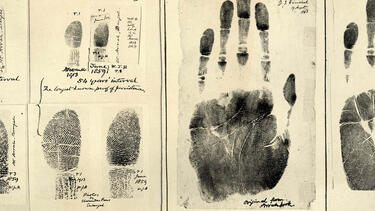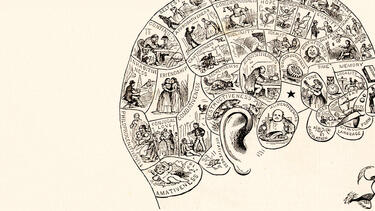Technology
This Is How the AI Bubble Bursts
Yale SOM leadership expert Jeffrey Sonnenfeld and co-author Stephen Henriques write that the tangle of AI deals among tech giants could be signs of dangerous overinvestment in the developing technology. They outline three ways the bubble could pop.

Can We Secure Online Identities?
Cybersecurity entrepreneur Sunil Madhu says that using credit history to identify individuals is outmoded and new tools are needed to conduct commerce securely.

Can Blockchain Become the Infrastructure of Financial Services?
Blythe Masters aims to remake the infrastructure of financial services with blockchain distributed ledger technology.

Can Regulators Keep Up with Fintech?
Can the tech industry’s “move fast and break things” approach create innovation in financial services without wrecking the economy?

Can a Place Built on Global Banking Survive Britain’s Retreat from Europe?
Professor William Goetzmann discusses the uncertainty facing the financial hub at Canary Wharf as Britain moves steadily toward its divorce from the European Union.

Social Media, the Corporation, and the State
Yale’s Shyam Sunder assesses some of the complications that arise when multinational corporations become implicated in political questions.
Where Is the Auto Industry Headed?
How will self-driving cars and other new technology reshape the industry? Prof. Jeffrey Sonnenfeld talks with former Ford CEO Mark Fields.

How to Respond to the Equifax Breach
After the Equifax breach, Yale SOM's Shyam Saunder says, we should put the burden for protecting identities back onto major companies.

How Do You Build a Design Team?
When designer Cap Watkins arrived at the digital media powerhouse Buzzfeed in 2015, the company had a group of talented designers. What it didn’t have, Watkins told Yale Insights, was the structure to help them to work together and build their careers.

Companies That Look for Social and Cognitive Skills Seem to Do Better
Computers are able to do many tasks, but people still outperform them at human interactions and complex decision-making. A new study suggests that successful companies take advantage of these capabilities.

What’s the Energy Equation?
What will the world’s use of energy look like in the coming decades, as technological advances revolutionize transportation and push down the price of renewable energy?